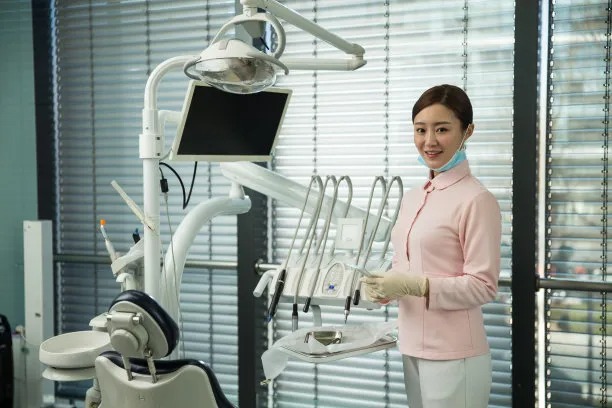The Importance of Extracting a Tooth for Dental Health and Overall Wellbeing
Summary: Extracting a tooth is often perceived as a last resort in dental care, but its significance extends far beyond mere oral health. In this article, we will explore four crucial aspects of tooth extraction, demonstrating how it plays a vital role in maintaining dental health and overall wellbeing. First, we will discuss the prevention of oral diseases, followed by the crucial role tooth extraction plays in alleviating pain. Next, we will examine how removing problematic teeth can enhance overall dental function. Finally, we will explore the psychological benefits associated with a healthier mouth, emphasizing the impact on self-esteem. By understanding these facets, we can appreciate the importance of tooth extraction not merely as a dental procedure, but as a significant step toward a healthier, happier life.
1. Preventing Oral Diseases and Infections

One of the primary reasons for tooth extraction is to prevent the spread of oral diseases. Impacted or severely decayed teeth can act as a breeding ground for bacteria, which may infiltrate the gums and surrounding tissues. This can lead to serious infections that not only affect oral health but may also jeopardize overall health.
Removing these problematic teeth helps to eliminate the source of infection, reducing the risk of developing more severe health complications such as abscesses or periodontal disease. By extracting teeth that cannot be restored, dental professionals ensure that the surrounding teeth and gums remain healthy.
Moreover, timely removal of diseased teeth can save patients from more extensive treatments in the future. Prevention is always more cost-effective and less painful than dealing with advanced stages of dental problems, making extraction a beneficial approach towards maintaining oral health.
2. Alleviating Pain and Discomfort
Tooth extractions are often performed when a tooth is causing significant pain. This pain can stem from various sources, including decay, infection, or trauma. When conservative treatments fail, extraction becomes necessary to alleviate the patient’s discomfort effectively.
For many individuals, chronic tooth pain can lead to a decline in quality of life. It can interfere with daily activities, affecting both personal and professional life. By removing the source of the pain, patients can experience immediate relief and get back to their normal routines.
Additonally, extracting troublesome teeth can also relieve pressure in the jaw and surrounding areas, which can result from impacted teeth. Once the problematic tooth is removed, patients often report a better quality of life, illustrating that dental extractions do more than just improve oral health; they restore overall comfort.
3. Enhancing Dental Function and Alignment
Tooth extraction can often lead to improved dental function and alignment. In cases where overcrowding occurs, removing one or more teeth can create sufficient space for proper alignment. This is essential, especially before orthodontic treatments. Misaligned teeth can lead to improper chewing, which may carry further implications for digestive health.
In addition to aiding in orthodontic practices, removing teeth that are causing alignment issues can enhance one’s ability to speak and eat comfortably. Many individuals suffer from issues such as lisping or difficulty chewing due to misaligned teeth. Extraction can provide them with the chance to restore their speech and eating functions.
Furthermore, several dental issues can spread if not properly addressed. For instance, a tooth that is overly decayed can shift neighboring teeth out of place, complicating ones bite and leading to further dental issues. Through extraction, the dental structure can be reset, ensuring a healthier foundation for future treatments.
4. Psychological Benefits of a Healthy Smile
The psychological impact of having a healthy smile cannot be overstated. Many individuals feel self-conscious about their teeth, especially if they have decay or missed teeth. Extracting these problematic teeth — followed by the appropriate restorative work — can lead to significant boosts in self-esteem and confidence.
Moreover, when individuals experience pain or discomfort due to dental issues, it can have a negative effect on their mental health, leading to increased stress levels and anxiety. By addressing these dental problems through extraction, patients can find relief not only physically but also psychologically.
The simple act of smiling, often hindered by poor dental health, can improve ones mood and social interactions. Extracting problematic teeth can pave the way for healthier self-image and more positive social experiences, emphasizing that dental health has profound implications on overall psychological wellbeing.
Summary:
In conclusion, tooth extraction is a vital procedure that entails far-reaching benefits for dental health and overall wellbeing. Preventing oral diseases, alleviating pain, enhancing dental function, and providing psychological benefits are just a few aspects that highlight the importance of this intervention. By addressing dental problems proactively through extraction, individuals safeguard not only their oral health but also their quality of life and self-esteem.
This article is compiled by Vickong Dental and the content is for reference only.



